Backpacking solo vs. with a group: Backpacking is a form of low-cost, independent travel that involves carrying all necessary gear on your back. It is a way of exploring the world, immersing yourself in different cultures, and experiencing the great outdoors.
When it comes to backpacking, there are two main options: solo or with a group. In this article, we will discuss the pros and cons of each option, as well as the factors to consider when choosing between them.
Solo backpacking provides the ultimate freedom and flexibility, allowing you to set your own pace, chart your own course, and savor solitude.
On the other hand, backpacking with a group offers a supportive network, shared experiences, and a sense of security that can be hard to come by when traveling alone. So, what’s the best option for you?
It depends on your personality, travel style, and goals. Whether you’re seeking self-discovery, a chance to disconnect, or a chance to make new friends, backpacking solo or with a group offers something for everyone.
In this blog, we’ll explore the pros and cons of each option, helping you make an informed decision on your next backpacking adventure. Get ready to weigh your options and decide whether backpacking solo or with a group is the right choice for you.
1. Pros of backpacking solo
Independence and freedom
One of the biggest advantages of backpacking solo is the independence and freedom it provides. You have the ability to make your own decisions, set your own itinerary, and go at your own pace.
You are not beholden to anyone else’s schedule or interests.
This kind of independence can be empowering and liberating, as you have the opportunity to fully immerse yourself in the experience without any external distractions or obligations.
Additionally, traveling solo allows you to meet new people and make unexpected connections that you might not have had the chance to if you were traveling with others.
It can also push you out of your comfort zone and help you develop valuable life skills, such as problem-solving, adaptability, and self-reliance.
Ultimately, backpacking solo can be a truly transformative experience that allows you to discover more about yourself and the world around you.
Ability to set your own pace
Another advantage of solo backpacking is the ability to set your own pace. Whether you want to take it slow and enjoy the journey, or push yourself to your limits, you have the power to do so.
Solo backpacking gives you the flexibility to adjust your itinerary on the fly. Without the need to compromise with a group, you can take detours, extend your stay in a particular location, or move on quickly if you feel the need.
This kind of freedom allows you to create a more personalized and fulfilling travel experience, one that’s entirely unique to your interests and desires.
Personal growth and self-discovery
Solo backpacking can also be a transformative experience in terms of personal growth and self-discovery. You will have the opportunity to reflect on your life and your goals, and to develop a deeper understanding of who you are and what you want.
Through solo backpacking, you’ll learn to rely solely on yourself, and this will boost your self-confidence and independence. You’ll have to navigate unfamiliar places and make decisions on your own, which will challenge you and push you out of your comfort zone.
Additionally, you’ll likely encounter people from different cultures and backgrounds, which can broaden your perspective and increase your empathy towards others. These experiences can lead to lasting personal growth and a greater sense of self-awareness.
Recommeded backpacking accessories
Best rope

First aid kit
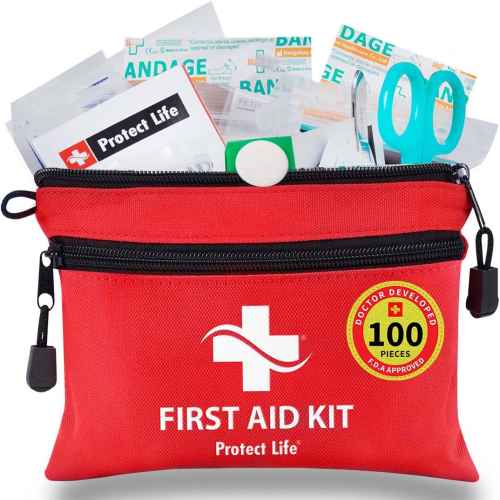
Ice grip for boots

Increased focus on the surroundings
Without the distractions of traveling with others, you will be able to focus more on your surroundings and fully immerse yourself in the experience.
You will have the opportunity to connect with the environment and the local culture in a deeper way.
By traveling solo, you can also be more flexible with your itinerary and make impromptu decisions without having to consider other people’s preferences.
This freedom can lead to unexpected adventures and opportunities to meet new people. Additionally, traveling solo can boost your self-confidence and independence, as you navigate new places and situations on your own.
Overall, solo travel can be a transformative and enriching experience that allows you to grow personally and broaden your perspectives.
More budget-friendly
Finally, solo backpacking can be more budget-friendly, as you will not have to split costs with anyone else. You will have more control over your expenses and can choose to allocate your budget in ways that make the most sense for you.
Additionally, solo backpacking allows for greater flexibility in your itinerary. You can change plans at the last minute without having to coordinate with anyone else.
This can be particularly beneficial if you are traveling to areas where weather or other unforeseen circumstances can impact your plans.
Ultimately, solo backpacking offers a sense of independence and adventure that can be difficult to replicate when traveling with others.
Also see: Backpacking with Eggs
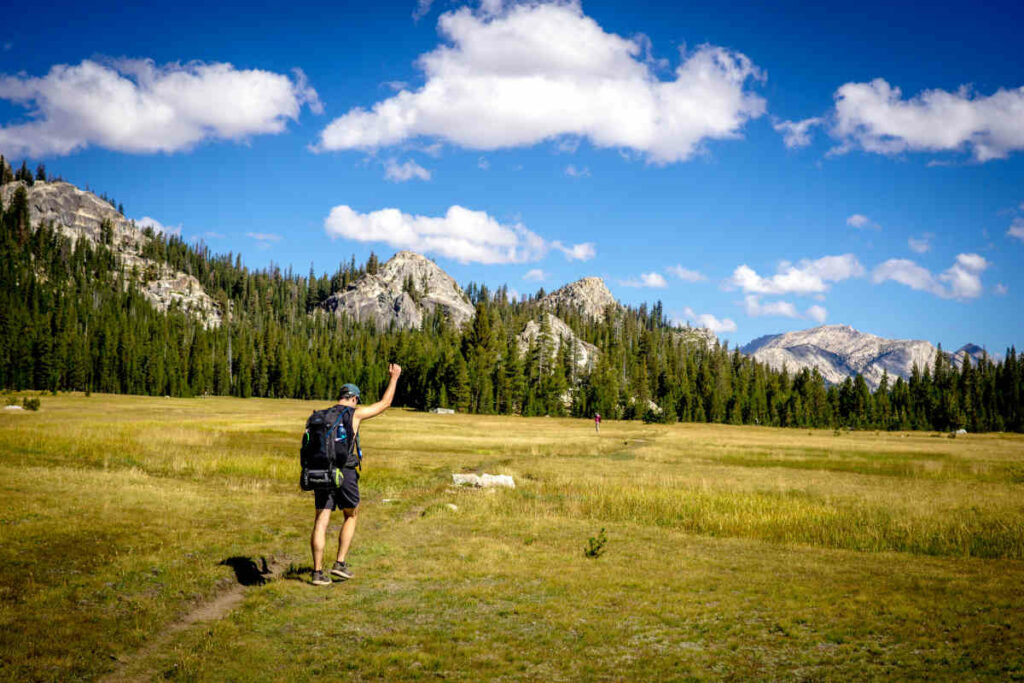
2. Cons of backpacking solo
Safety concerns
One of the biggest drawbacks of solo backpacking is the safety concerns that come with traveling alone. You will have to be more vigilant about your surroundings and take extra precautions to ensure your safety.
Some of the safety measures that solo backpackers can take include researching the area they plan to visit, carrying emergency contact information and first aid supplies, avoiding walking alone at night, and staying aware of their surroundings.
It is also a good idea to share travel plans with friends or family and check in regularly.
Despite the risks, many backpackers enjoy the independence and adventure that solo travel offers, and with proper preparation, it can be a safe and rewarding experience.
Loneliness and isolation
Another challenge of solo backpacking is loneliness and isolation. While you may relish the independence and solitude, you may also feel lonely and isolated at times, especially if you are not used to spending long periods of time alone.
Being alone in the wilderness for an extended period can be daunting. Solitude can take a toll on a person’s mental and emotional well-being, leading to feelings of sadness, anxiety, and even depression.
However, solo backpacking also provides an opportunity for introspection and self-discovery. It allows you to confront your fears, learn more about yourself, and grow as a person.
Therefore, while loneliness and isolation are definite challenges, they can also be an essential part of the backpacking experience.
Difficulty with logistics and planning
Solo backpacking also requires a higher level of organization and planning. You will need to take care of all the logistics yourself, from booking accommodations to arranging transportation.
Additionally, solo backpacking requires you to pack smart and efficiently, as you will be carrying everything on your own. You will also need to research and understand the local customs and laws to ensure that you stay safe and respect the culture of the places you visit.
While it may require more effort and preparation, solo backpacking can be a rewarding and enriching experience that allows you to fully immerse yourself in your travels.
Physical and mental challenges
Finally, solo backpacking can be physically and mentally challenging. You will need to be able to handle the demands of traveling alone, both physically and emotionally.
It’s important to be in good physical shape before embarking on a solo backpacking trip, as you may need to carry all your gear and walk long distances.
Mental preparation is also crucial, as you will need to be comfortable with spending time alone and making decisions independently.
However, the sense of accomplishment and self-reliance that comes with completing a solo backpacking trip is unparalleled.
Financial burden
Additionally, solo backpacking can be more expensive in some ways, as you will have to bear the full cost of your trip. This can be a financial burden, especially if you are traveling for an extended period of time.
On the other hand, traveling with a group can help you split costs for accommodation, transportation, and even food. This can make your trip more affordable and allow you to do more activities within your budget.
Moreover, traveling with others can also provide a sense of security and companionship, which can be comforting and enjoyable, particularly if you’re visiting a new place.
Ultimately, the decision to travel alone or with a group depends on your preferences, budget, and the type of experience you’re looking for.
Also see: How to Backpack with Eggs?
Backpacking accessories
Top pick

Editor’s choice
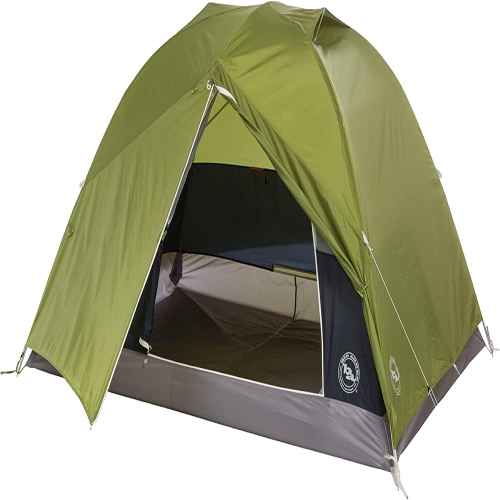
Best value
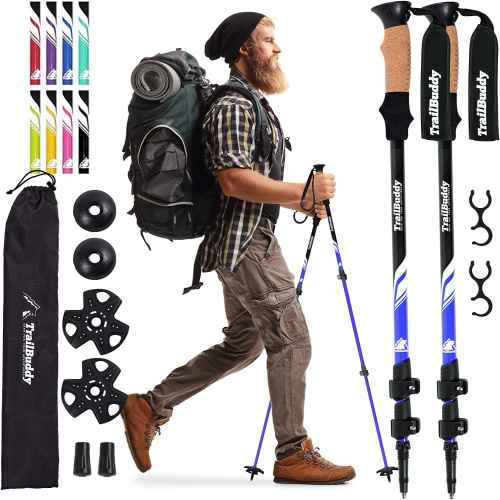
3. Pros of backpacking with a group
Safety in numbers
One of the biggest benefits of backpacking with a group is the safety in numbers. By traveling with others, you will have a sense of security and support that can make your trip more enjoyable and less stressful.
Moreover, backpacking with a group also offers the opportunity to make new friends, share experiences, and create lasting memories.
It can also provide a chance to split the cost of gear and supplies, which can be especially helpful for longer trips.
Additionally, traveling in a group allows for the division of tasks, making it easier to navigate and plan your itinerary.
All in all, backpacking with a group can enhance your adventure and leave you with a sense of camaraderie that is hard to replicate when traveling solo.
Social interaction and company
Another advantage of group backpacking is the social interaction and company it provides. You will have the opportunity to make new friends, share experiences, and create lasting memories together.
Group backpacking offers an excellent chance to learn from each other. Hiking with individuals of different backgrounds and skills means you can exchange knowledge and skills, such as navigation or campfire cooking.
Moreover, group backpacking can be a great way to challenge yourself and gain confidence while making memories with like-minded people.
Whether you’re a seasoned hiker or a beginner, group backpacking can help you grow and enhance your outdoor experience.
Sharing responsibilities and costs
Group backpacking also allows you to share responsibilities and costs, which can make your trip more affordable and manageable. You can divide the expenses, such as transportation, accommodation, and food, among the group, reducing the financial burden on any one person.
In addition to cost-sharing, group backpacking can also distribute responsibilities such as cooking, setting up camp, and navigating trails.
This not only allows for a more efficient use of time but also creates a sense of community and camaraderie among the group.
Moreover, traveling in a group can provide added safety and security, particularly when exploring unfamiliar areas or challenging terrains.
Overall, group backpacking offers an excellent opportunity for budget-conscious travelers to enjoy the great outdoors and make lasting memories with like-minded individuals.
Access to a wider range of skills and expertise
When backpacking with a group, you also have access to a wider range of skills and expertise. You can benefit from the knowledge and experience of others, and learn new things along the way.
Whether it’s a specific skill related to backpacking, or just general life experience, you can gain a lot from traveling with others.
Furthermore, backpacking with a group allows for greater safety and support on the trail. If someone in the group encounters an issue or needs assistance, there are multiple people available to help.
Additionally, the camaraderie and social aspect of group backpacking can make the experience more enjoyable and memorable.
More fun and memorable experience
Finally, group backpacking can be a more fun and memorable experience overall. You will have the opportunity to share your adventures with others, and create lasting memories together.
Whether it’s through shared laughter, or simply exploring new places, backpacking with a group can be a truly enriching experience.
In addition, group backpacking offers a sense of security, as you have others to rely on in case of emergency. Moreover, the diverse perspectives and backgrounds of your fellow backpackers can lead to unique and eye-opening experiences.
Overall, group backpacking can foster a sense of community and camaraderie that will make your journey even more rewarding.
Also see: How to Pack Eggs for Backpacking?

4. Cons of backpacking with a group
Compromise on independence and freedom
One of the biggest drawbacks of group backpacking is the compromise on independence and freedom. You will need to take into account the schedules, interests, and opinions of others, which can limit your freedom to make your own decisions and go at your own pace.
Group backpacking often requires compromises on route selection, meal planning, and campsite choices, which can be frustrating for those who prefer to have complete control over their experience.
However, group backpacking can also be a great way to meet new people, share experiences, and learn from others, making it a worthwhile trade-off for many adventurers.
Challenges with group dynamics
Another challenge of group backpacking is the potential for conflicts and disagreements within the group. Group dynamics can be difficult to manage, especially when dealing with different personalities, schedules, and interests.
It’s important for group backpackers to establish clear communication and conflict resolution strategies before embarking on their trip.
Flexibility and compromise are key when it comes to managing group dynamics and ensuring everyone has a positive experience.
Difficulty in setting your own pace
Group backpacking can also be challenging if you have different pace preferences from the others in your group. It can be difficult to reconcile different travel styles, and you may find yourself feeling frustrated or held back if you are not able to set your own pace.
Furthermore, differing pace preferences can cause conflicts in scheduling and timing, leading to rushed or overly slow hikes.
Communication and compromise are crucial to ensure a successful group backpacking trip that accommodates everyone’s needs and abilities.
Increased logistics and planning
Finally, group backpacking can be more complicated in terms of logistics and planning. You will need to coordinate with others, arrange accommodations and transportation, and ensure everyone’s needs are met.
This can be a time-consuming and challenging process, especially if you are not used to traveling with others.
Additionally, group backpacking requires compromise and cooperation among members. Differing opinions and personalities can lead to conflicts, which can be stressful in a remote outdoor setting.
It’s important to communicate effectively and be open to different perspectives to ensure a successful and enjoyable trip for everyone involved.
Backpacking compass
Top pick

Editor’s choice
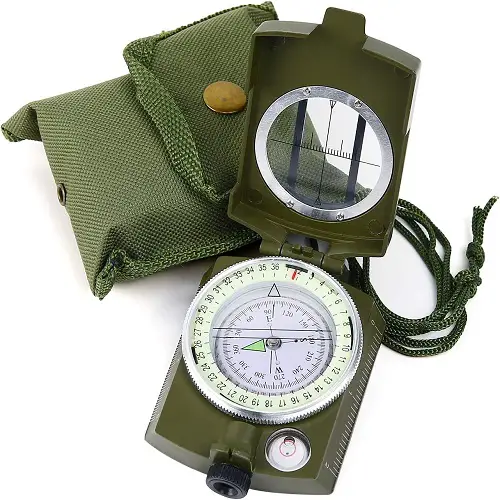
Best value

5. Factors to consider when choosing solo or group backpacking
Personal preferences and lifestyle
The first factor to consider when choosing between solo and group backpacking is your personal preferences and lifestyle.
Do you prefer independence and freedom, or do you value social interaction and company? This will help you determine which option is best for you.
Budget and financial considerations
Another important factor to consider is budget and financial considerations. While group backpacking can be more affordable in some ways, solo backpacking can also be more budget-friendly if you are able to control your expenses.
This may depend on various factors such as the cost of transportation, accommodation, and food.
Solo backpackers may have more control over their expenses as they can choose to cook their meals or stay in budget-friendly accommodations.
On the other hand, group backpacking can offer cost-sharing opportunities, but it may also mean compromising on individual preferences and choices.
Ultimately, it’s essential to weigh the pros and cons of both options and decide what works best for your budget and financial situation.
Travel destination and type of trip
The destination and type of trip you have in mind will also impact your decision. Some destinations may be more suited to solo travel, while others may be better for group travel.
Similarly, some trips may be more physically or mentally challenging, which could impact your decision as well.
Consider your personal preferences and limitations when choosing a travel style. If you prefer more relaxation and downtime, a leisurely solo trip may be more suitable.
On the other hand, if you enjoy socializing and trying new things, a group trip with planned activities may be more fulfilling. Remember to also factor in any health or mobility concerns before making a decision.
Experience and confidence level
Your experience and confidence level will also play a role in your decision. If you are a seasoned traveler with a lot of backpacking experience, you may feel more confident traveling solo.
On the other hand, if you are new to backpacking, traveling with a group may provide a more supportive and manageable experience.
Availability of travel companions
Finally, availability of travel companions will also impact your decision. If you have friends or family members who are interested in backpacking with you, group travel may be the way to go.
On the other hand, if you are unable to find travel companions, solo backpacking may be your only option.
Traveling alone may seem daunting, but it offers an unparalleled sense of freedom and self-discovery. Solo backpackers have complete control over their itinerary and can fully immerse themselves in their surroundings.
Additionally, it’s an excellent opportunity to meet other travelers and make new friends. However, solo travel does require a bit more planning and preparation to ensure safety and security.
Also see: Can You Take Eggs Backpacking?
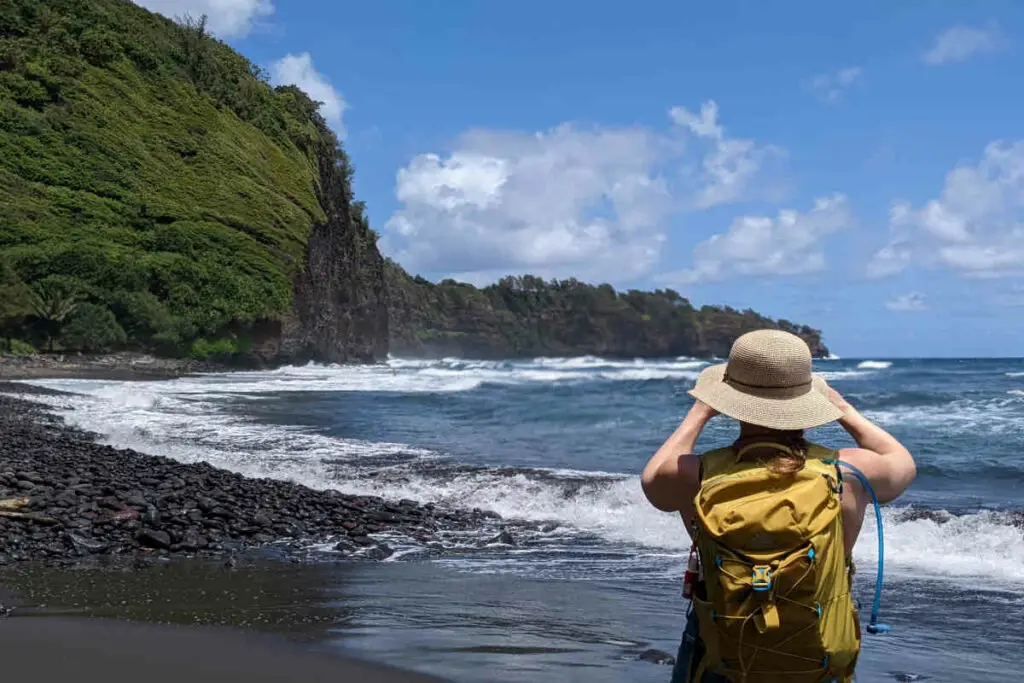
6. Tips for solo backpackers
Planning and preparation
The key to a successful solo backpacking trip is planning and preparation. Take the time to research your destination, plan your itinerary, and gather all the necessary gear and supplies.
Make sure to also consider safety measures and precautions, such as purchasing travel insurance, and having a plan in place in case of emergency.
It’s important to inform someone of your plans and expected route before embarking on your trip. In addition, learn basic first aid skills and bring along a well-stocked medical kit.
Finally, be mindful of the impact you leave on the environment and practice Leave No Trace principles to preserve the beauty of nature for future generations.
Safety measures and precautions
As a solo backpacker, it is important to take extra precautions to ensure your safety. This includes being aware of your surroundings, avoiding dangerous areas, and keeping your valuables secure.
It is also a good idea to let someone know your itinerary and check in regularly. In addition, it is recommended to carry a means of communication, such as a charged phone or satellite device, in case of emergencies.
Taking self-defense classes and learning basic first aid can also provide added security and preparedness while traveling alone.
Remember to trust your instincts and be cautious, but don’t let fear prevent you from enjoying the unique experiences of solo backpacking.
Dealing with loneliness and isolation
One of the biggest challenges of solo backpacking is dealing with loneliness and isolation. To overcome this, try to stay connected with friends and family back home, and seek out opportunities for social interaction with other travelers and locals.
Maximizing budget and minimizing costs
Solo backpacking also requires careful budget management. To maximize your budget and minimize costs, consider things like staying in budget accommodations, cooking your own meals, and avoiding tourist traps.
Building confidence and improving skills
Finally, solo backpacking is an opportunity to build confidence and improve your backpacking skills. Take the time to challenge yourself and push your limits, and you will come back from your trip a more confident and experienced traveler.
Backpacking stove
Top pick

Editor’s choice

Best value

7. Tips for group backpackers
Choosing the right travel companions
The key to a successful group backpacking trip is choosing the right travel companions. Make sure to choose people who have similar travel styles, interests, and budgets.
Consider factors like compatibility, communication skills, and conflict resolution abilities when choosing your travel companions.
It’s also important to discuss expectations and responsibilities beforehand, such as meal planning and gear distribution. Trust and reliability are crucial, as everyone will be relying on each other during the trip.
Finally, be open to compromise and be willing to adjust plans to accommodate everyone’s needs for a memorable and enjoyable group backpacking experience.
Planning and preparation
Just like solo backpacking, group backpacking requires careful planning and preparation. Take the time to discuss your itinerary, budget, and expectations with your travel companions, and make sure everyone is on the same page.
It’s also important to divide up responsibilities, such as who will bring what gear and who will handle cooking and navigation. Keep in mind the needs and abilities of all group members, and make adjustments as necessary.
With proper planning and communication, group backpacking can be a fun and rewarding experience for everyone involved.
Dealing with group dynamics and conflicts
One of the biggest challenges of group backpacking is dealing with group dynamics and conflicts. To overcome this, make sure to communicate openly and honestly with your travel companions, and have a plan in place for resolving conflicts.
Another way to address group dynamics and conflicts is to establish clear roles and responsibilities for each member of the group, and to foster a sense of teamwork and mutual respect.
Additionally, taking breaks and allowing for personal space can help alleviate tensions during group backpacking trips.
Remember, effective communication and proactive problem-solving can make all the difference in a successful and enjoyable group backpacking experience.
Sharing responsibilities and costs
When backpacking with a group, it is important to share responsibilities and costs fairly. This means dividing tasks like booking accommodations, arranging transportation, and preparing meals.
By distributing responsibilities evenly, everyone in the group can contribute to the success of the trip. Additionally, sharing costs can help prevent any one person from being burdened with an unfair financial burden.
Overall, fair distribution of responsibilities and costs is crucial for a harmonious and enjoyable group backpacking experience.
Maximizing fun and creating lasting memories
Finally, the goal of group backpacking is to maximize fun and create lasting memories. Encourage everyone to participate in activities, take photos, and keep a journal of your experiences.
This will help you to remember your trip for years to come. In addition, make sure to take breaks and rest when needed to avoid exhaustion. Bonding over meals and campfires is also an essential part of the experience.
Respect each other’s differences and be open to trying new things together. With good communication and a positive attitude, your group backpacking trip is sure to be a success.
Also see: Taking Fresh Eggs Backpacking
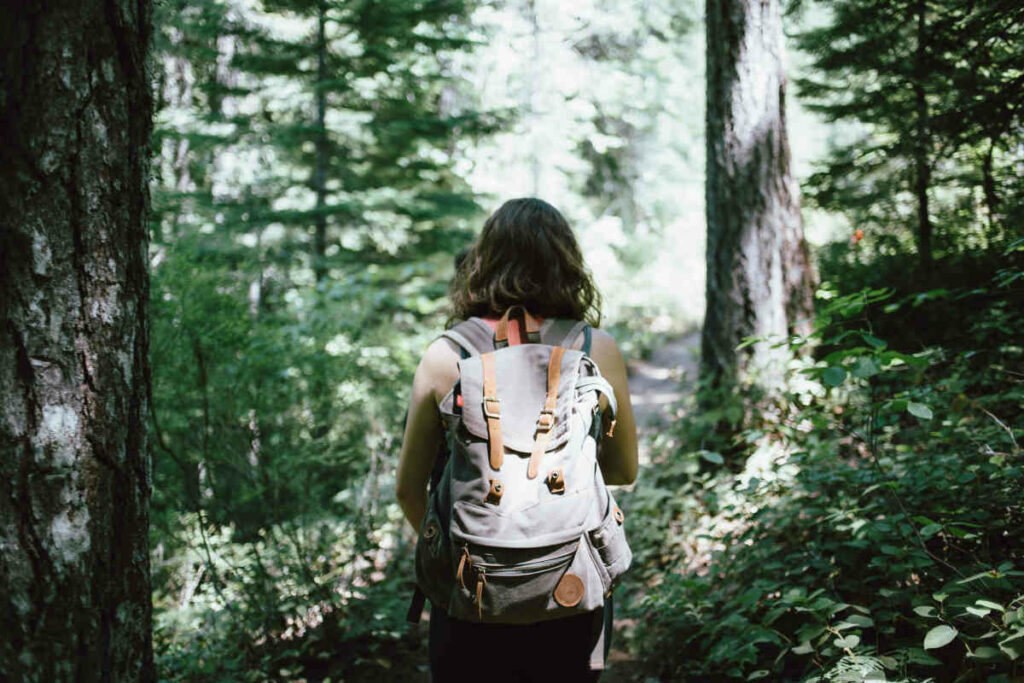
FAQ
1. What are the advantages and disadvantages of backpacking solo versus with a group?
Advantages of solo backpacking: freedom, self-reliance. Disadvantages: safety, loneliness. Group backpacking offers safety, socialization.
2. Is it safer to backpack solo or in a group?
Backpacking in a group is generally safer than backpacking solo due to increased safety measures.
3. How does backpacking solo differ from backpacking with a group in terms of cost?
Backpacking solo can be cheaper than in a group due to fewer expenses and shared costs.
4. What are some tips for backpacking solo?
Plan well, pack light, trust your instincts, stay safe, and enjoy the adventure!
5. What are some tips for backpacking with a group?
Plan together, communicate clearly, share responsibilities, respect each other’s needs, and have fun!
Conclusion
Backpacking solo and with a group each have their own unique pros and cons. Ultimately, the decision between solo and group backpacking will depend on your personal preferences and lifestyle, as well as factors like budget and experience level.
Whether you choose to travel solo or with a group, the most important thing is to embrace your backpacking adventure and have fun.
While solo backpacking can offer more freedom and flexibility in terms of itinerary and decision-making, it also comes with greater responsibilities and potential safety risks.
On the other hand, group backpacking can provide a sense of camaraderie, shared experiences, and safety in numbers, but may also limit your autonomy and require compromises on the trip’s schedule and activities.
Regardless of your choice, backpacking is an excellent way to explore new places, challenge yourself physically and mentally, and connect with nature and people from different cultures.
Remember to pack light, stay hydrated, respect local customs and regulations, and be open to unexpected adventures and encounters.
Whether you are hiking in the mountains, camping in the wilderness, or trekking through a foreign city, enjoy the journey and make memories that will last a lifetime.
Also see: Seattle to Yellowstone Road Trip

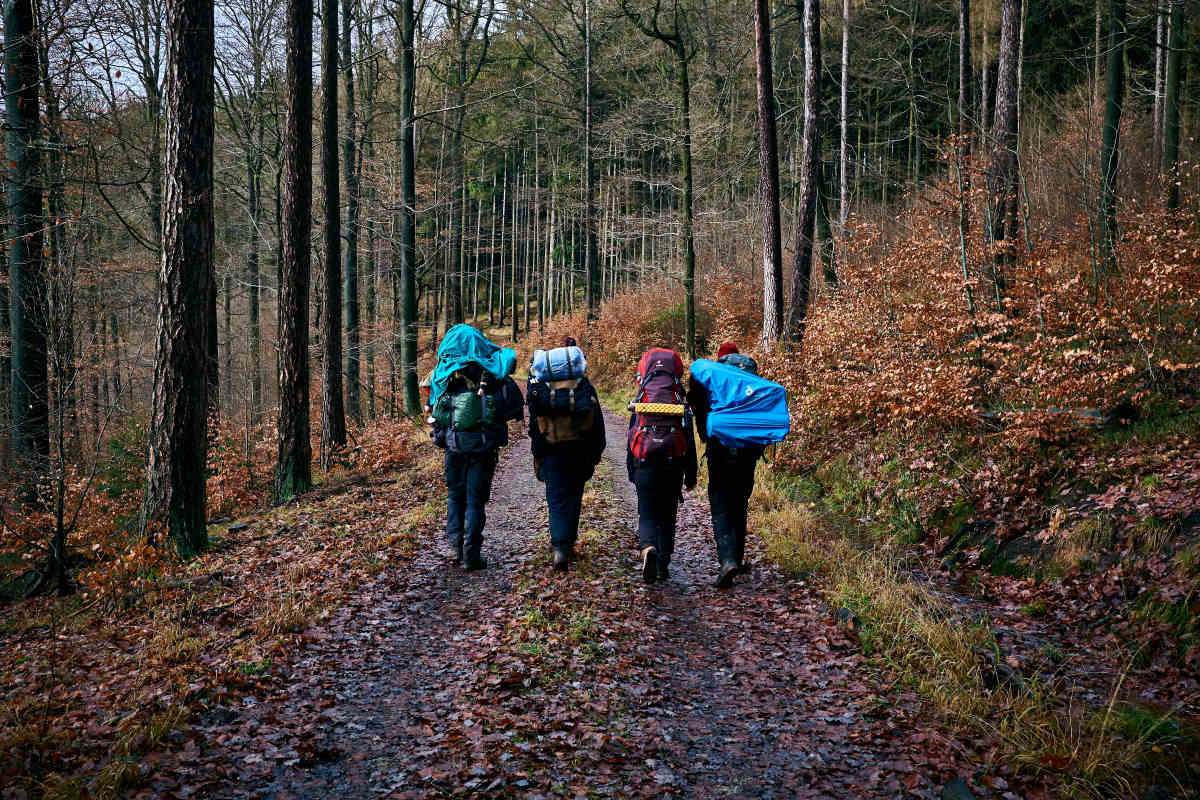







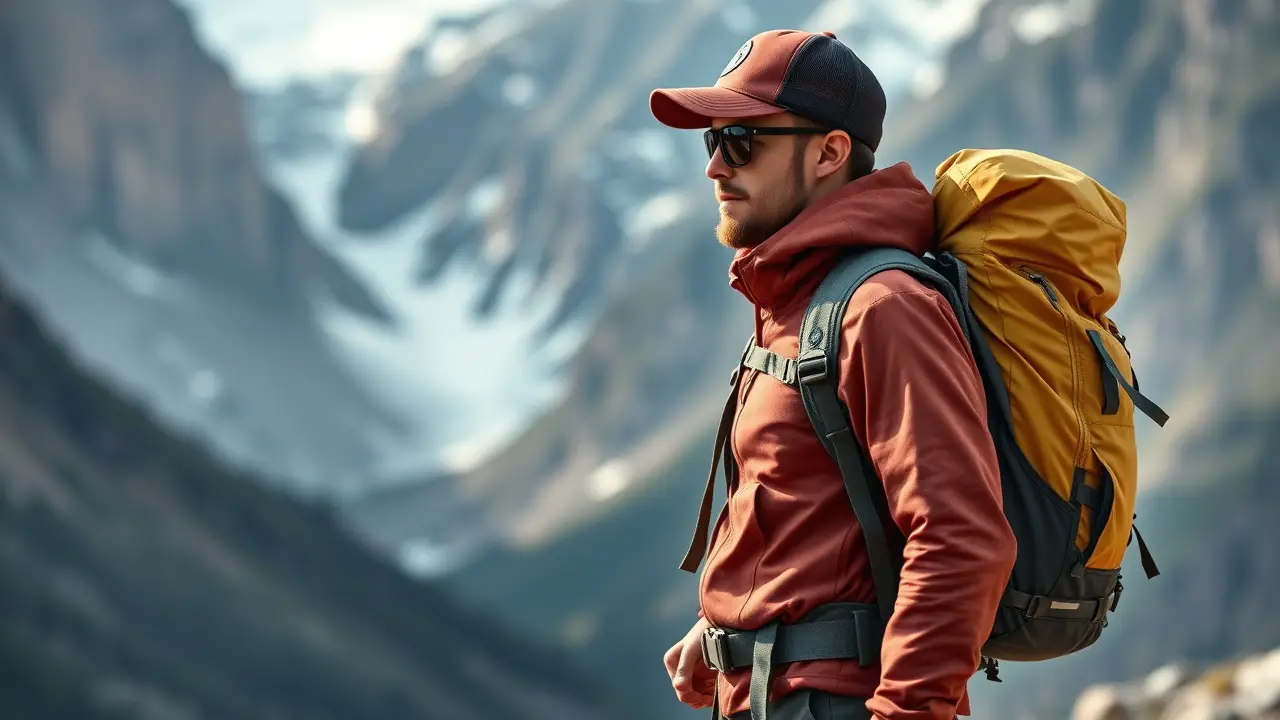
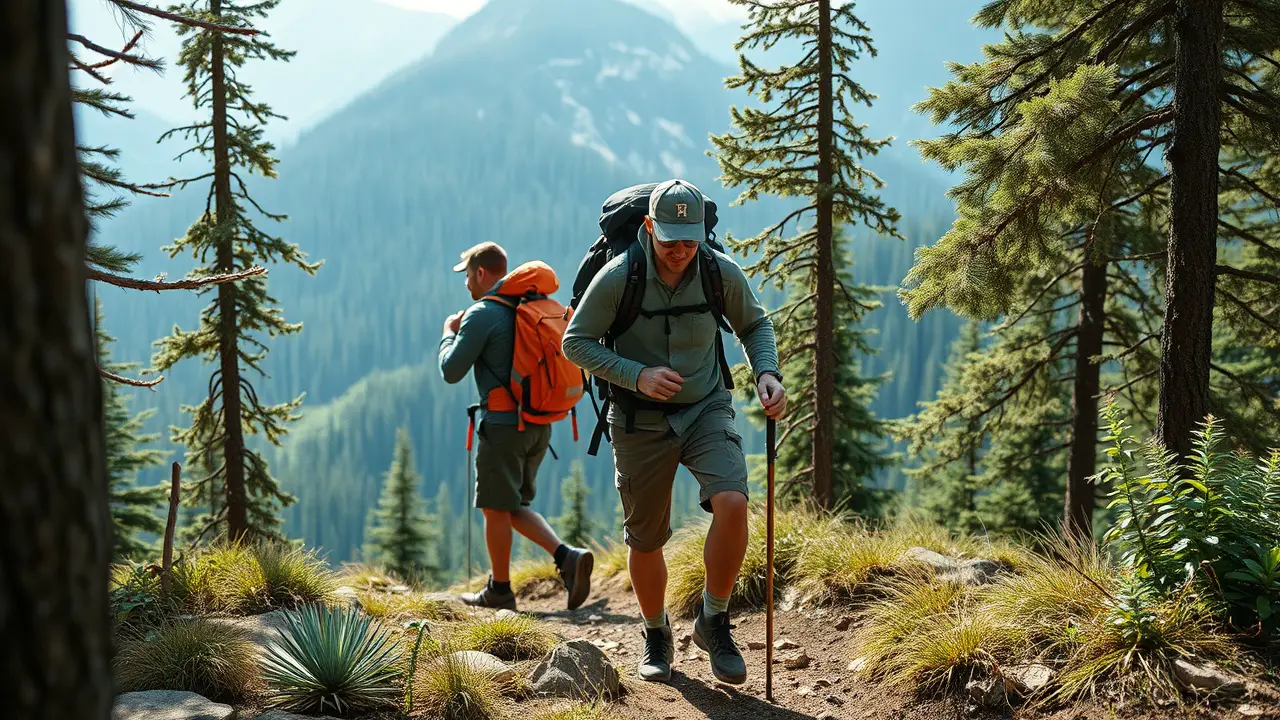
Leave a Reply